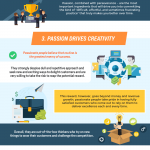Four Words And Phrases To Avoid When You’re Trying To Sound Confident
Like it or not, everybody is selling something. Job seekers, employees, and entrepreneurs all need to pitch themselves to somebody. For whatever else they are, social platforms are undeniably powerful self-promotion tools. Personal branding may come with certain pitfalls, but it’s also something of an imperative.
The result? Widespread fluency in the language of exaggeration. It’s one thing to pitch yourself honestly and authentically, but it’s another (much easier) thing to overdo it. By trying to project competence and self-confidence, we leave listeners unconvinced or turned off instead.
Getting it right doesn’t always require scrapping your whole strategy, though. It just means scrapping some of the words and phrases that are most likely to trip you up–like these four.
1. Superlatives
Superlatives are like paper currency: Issue too many and the value falls. Listeners will shrug when you overuse expressions like “the best,” “the most amazing,” and “the greatest.” These high-octane words may project enthusiasm, but of a superficial sort.
Send the word “awesome” into retirement. Rarely is it used to mean something that inspires admiration, respect, or fear–its dictionary definition. (And by the way, your brain can tell the difference; the experience of awe is cognitively and neurologically distinct from pleasure or excitement.) Instead, “awesome” is often a catchall term for a thought that’s poorly defined. Next time a client agrees to go to lunch with you, instead of saying “awesome,” try the more specific, “Lunch? Sure. I’ll look forward to chatting,” or even just, “Sounds great.”
But as a rule of thumb, you’ll want to avoid hyperbole if you want to sound confident yet credible. Effusive positivity often rings hollow. For example, listeners might wonder just what it means when the CEO of a car company announces, “We’ve got to make sure our cars are great.” Okay . . . but what will make them great? (Talk about that instead!) Or when a company tells its shareholders, “We’re in great shape.”
These statements are unsubstantiated generalities. It’s better to pick more specific language. Also avoid modifiers that bump up the hype factor when you’re already describing something’s merits—words like “totally,” “really,” and “very.”
3. Repetition
Repeating words can also undermine your credibility. If we hear a leader say, “We have a great, great plan,” it sounds like he’s either exaggerating or has run out of words in his lexicon—or both. If a team leader says, “We’ve got the best people working on this project. They’re the best in the field, absolutely the best!” it’ll sound less compelling than something more straightforward and better defined: “We have a seasoned team on this project–almost all of them with at least a decade of experience in corporate finance.”
Similarly, if a financial analyst says to her boss, “We’ve got to invest in this company, we’ve got to invest whatever we can,” the repeated expression stands in for her rationale–why she thinks it’s such a promising investment–which you can be sure her boss will ask for.
Repetition can be a powerful rhetorical tool, but most of the situations where we’re trying to project confidence aren’t sweeping orations in front of teeming crowds. Dr. Martin Luther King, Jr.’s frequent repetitions in his “I have a dream” speech is an act of eloquence suited to the occasion–it’s not because he’s run out of thoughts.
4. “Like I Said”
Finally, be careful about referring back to yourself too much, with phrases like, “As I mentioned,” “Like I said,” or, “As I’ve believed all along.” These may leave you sounding too self-assured or even defensive. Or worse, they can hint that you aren’t sure you actually got your point across the first time, so you’re underlining it again. Make your points clearly the first time around, so there’s no need to repeat them.
These four language patterns can all quietly chip away at your credibility when you need it most. They’ll make you sound as if you’re inflating your points, and that you’re unable to deliver clear, concrete, and credible ideas. Avoid them, and you’ll come across as confident–not overconfident.
Fast Company , Read Full Story
(115)














